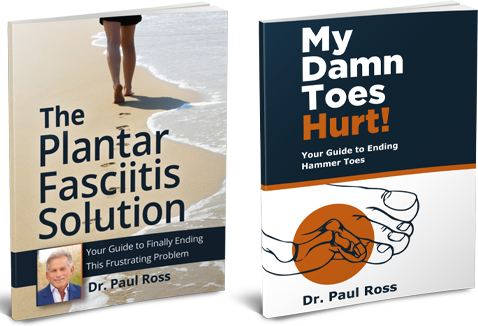 On a daily basis, your feet do a lot of work carrying you from place to place! Your body weight exerts a lot of force on the bones and tendons in your feet as you walk and this can be the source of foot problems. If your shoes don’t fit properly, issues such as hammertoes and claw toes can develop. Our foot doctors in Bethesda, MD, explain more here.
On a daily basis, your feet do a lot of work carrying you from place to place! Your body weight exerts a lot of force on the bones and tendons in your feet as you walk and this can be the source of foot problems. If your shoes don’t fit properly, issues such as hammertoes and claw toes can develop. Our foot doctors in Bethesda, MD, explain more here.
Hammertoes vs. Claw Toes
Both hammertoes and claw toes cause unsightly and painful curving of the toes. These conditions generally do not affect the big toe, only the smaller toes. Left untreated, the problem will get worse and can lead to calluses and corns on the areas of the toe that meet friction inside the shoe. However, the resulting deformities are different:
- Hammertoes curve at the middle joint, forcing the toe downwards. They can be accompanied by bunions.
- Claw toes usually affect multiple toes at once, curving at the joint where the toes meet the foot. Claw toes are bent upwards at the first joint and downwards at the middle joint.
Both hammertoes and claw toes can cause pain, bunions, calluses, and even issues with gait. Over time, it can become difficult to find shoes that fit properly.
Causes
Hammertoes and claw toes are usually caused by wearing shoes that are too small, too narrow, or too short. They can also result from wearing high heels, as the toes are pushed forward into an awkward bent position that can damage the toe joints. Over time, the tendons shorten, making it impossible for the toe muscles to straighten when shoes are removed.
Treatments
After our podiatrist diagnoses your condition, we will recommend the best treatment for you. This generally starts with adjusting your footwear, wearing cushions around your toes, and taking care of calluses or corns. If conservative treatments don’t resolve the problem, surgery to reposition the joint and straighten the toe may be recommended.
Contact Our Foot Doctors in Bethesda, MD, To Learn More Today!
The information provided in this article is not meant to be medical advice and is for educational purposes only. If you would like to learn more about this and other podiatry-related topics, feel free to contact The Podiatry Center by clicking here or by calling 301-232-3764.

